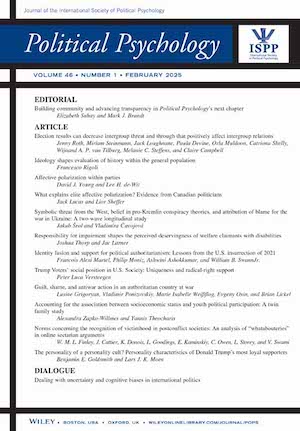Dans la même rubrique
- CEVIPOL
- FR
- Publications
- Articles
- Publiés en 2025
-
Partager cette page
Psychological insights on the fans' boycott of the 2022 FIFA World Cup
By Pauline Grippa, Paul Bertin
ÉDITION
COLLECTION
Political Psychology
LIEN

Abstract
The 2022 FIFA World Cup in Qatar has been criticized for numerous social, political, and environmental issues. While an important call to boycott the tournament spread worldwide, research has yet to document the motives underlying a boycott of such a mega sporting event. We investigated fans' intentions to boycott the 2022 FIFA World Cup in four countries of the Francophonie engaged in the World Cup (N = 1635). We found that being highly identified with the team and enjoying football for aesthetic pleasures predicted rejection of the boycott, while the most robust predictor of boycott intentions was a concern for environmental issues. When assessing actual boycott behaviors among fans after the World Cup(N = 286), we found a significant decrease compared to boycott intentions. Importantly, this intention–behavior gap was even more pronounced among politicized fans with high awareness of social and environmental issues who had initially planned to boycott the tournament. We discuss the paradox of calls to boycott mega sporting events: Unlike other consumer products, these events often have no alternatives, yet they are central to the social identity of sports fans. As a consequence, such a boycott may be better explained by a low level of fandom rather than solely by strong political values, with remaining boycotters likely being those who had little interest in the event from the outset.
